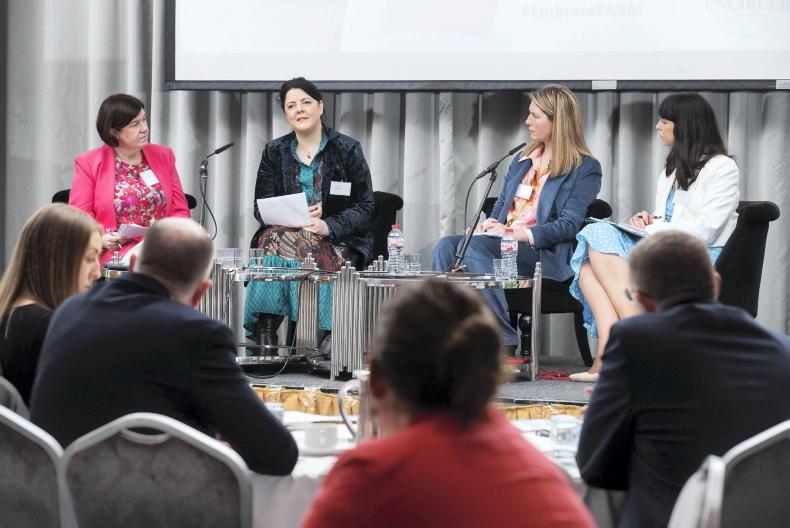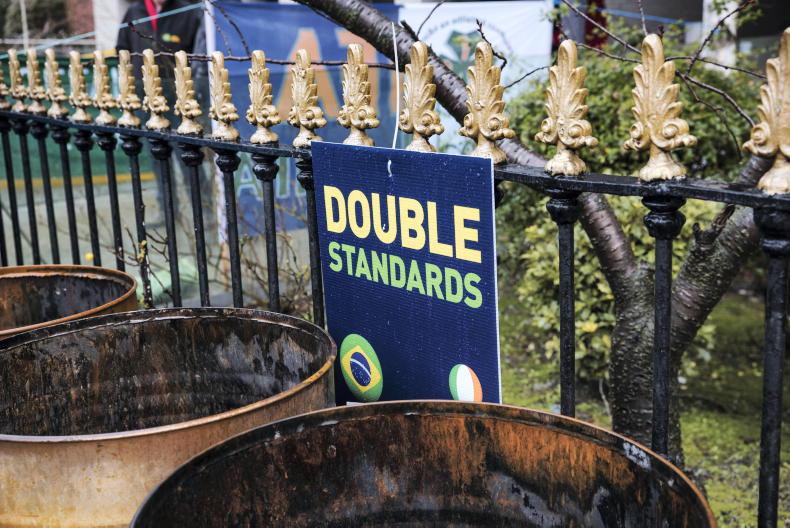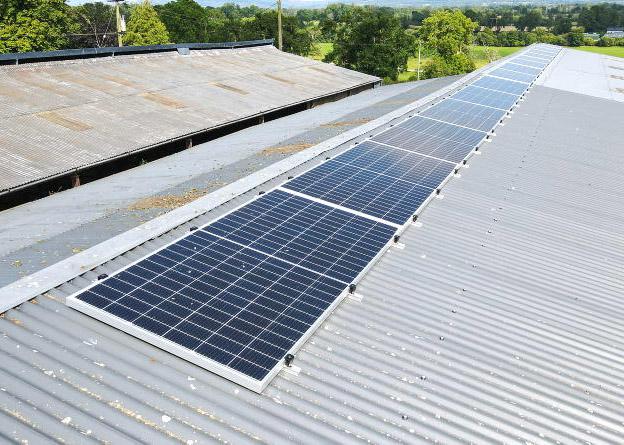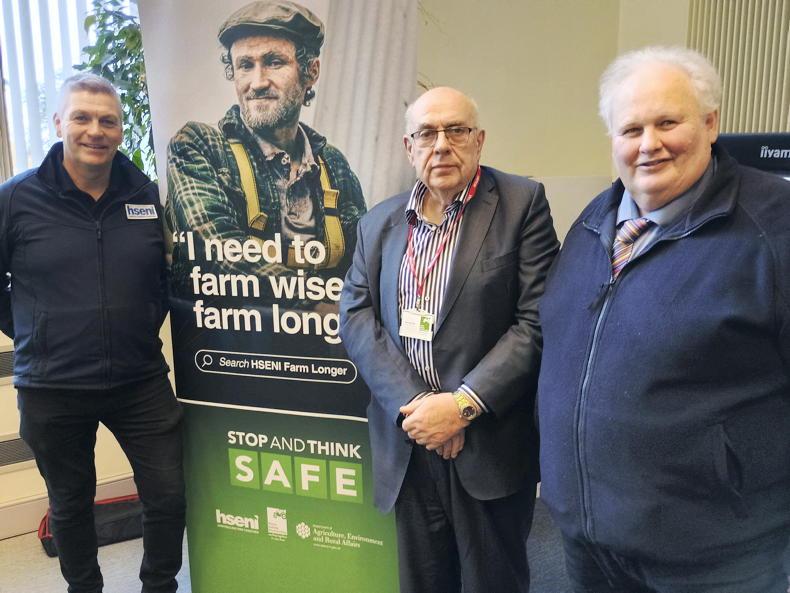Over half of the people in Ireland aged between 25 and 64 have a third-level education; 14% also have a master’s degree and 1% hold a doctoral degree. There are multiple reasons why people go on to study for a master’s: to specialise, to change direction or because they are still unsure of their path. A research master’s can provide a link from college life to the working world and in agriculture, we are fortunate to have many funded options available. However, this also could see students embark on a master’s or doctorate that they are not interested (enough) in. I was almost one of those and am grateful to my master’s supervisor for calling a halt to my education at that juncture. I was going to change my statistically challenged master’s over to a PhD and he asked me why I wanted to do that. The truth was, I didn’t know – and with that, the doctorate became part of the longer-term plan. Sarah McIntosh reports on what to consider before taking a master’s degree in agri careers.
While I was not destined for a life in research, I am grateful that many do follow that path as it is research that informs policy. Last week, I was invited to sit on a panel “Beyond the farm gate – continuing to meet their needs” at the Embrace Farm Encircle programme conference. Tangible actions to build on the work of the programme were sought. With this aim in mind, two Teagasc researchers asserted that data will form a big part of informing action in this regard. While acknowledging that behind the statistics is a farmer and a farm family, economist Anne Kinsella mooted how data collection is changing at EU level. The farm accountancy data network (responsible for collecting financial and economic data on farms) is becoming the farm sustainability data network. No longer will the focus be purely on economic information, but also on environmental and social data. Anne said that this will present an opportunity to compare Irish farmers with others across Europe, but will consider other variables (like farmer stress) for farm accidents. She said this provides the opportunity to look at not only the sustainability of the farm system, but also the sustainability of the farm household and the farmer within that ecosystem. And, importantly, how this can be better supported within the Common Agricultural Policy (CAP).
Dr David Meredith (also from Teagasc), who is coordinating the EU-funded SafeHabitus project – the largest farm safety project ever begun – said he had both an offer and a request from those in attendance. SafeHabitus seeks to develop recommendations for better-performing policies for farmers and farm workers. He stressed the need to generate the evidence and knowledge required to support the development of initiatives or programmes.

Teagasc Economist Anne Kinsella spoke about the importance of good data in support of policies on-farm accidents.
Within the project, they have (some) resources, but they are interested in hearing from people about what they believe are the knowledge gaps and what people need to know more about. It was his closing line that summed up the reason why it’s so important to do research: “How do we take what we do in research and translate it into something that is delivered in the right way, through the right medium, so that it reaches the end users and has an impact with them? Otherwise, we may as well take all that money from the EU and burn it, because if we’re not having an impact we are at nothing.”
Researching for impact as a student or a professional is key to successful outcomes.
Read more
Editorial: Wrexham and the modern cult of personality
Editorial: for one in almost five jobs, it is still worth just asking
Over half of the people in Ireland aged between 25 and 64 have a third-level education; 14% also have a master’s degree and 1% hold a doctoral degree. There are multiple reasons why people go on to study for a master’s: to specialise, to change direction or because they are still unsure of their path. A research master’s can provide a link from college life to the working world and in agriculture, we are fortunate to have many funded options available. However, this also could see students embark on a master’s or doctorate that they are not interested (enough) in. I was almost one of those and am grateful to my master’s supervisor for calling a halt to my education at that juncture. I was going to change my statistically challenged master’s over to a PhD and he asked me why I wanted to do that. The truth was, I didn’t know – and with that, the doctorate became part of the longer-term plan. Sarah McIntosh reports on what to consider before taking a master’s degree in agri careers.
While I was not destined for a life in research, I am grateful that many do follow that path as it is research that informs policy. Last week, I was invited to sit on a panel “Beyond the farm gate – continuing to meet their needs” at the Embrace Farm Encircle programme conference. Tangible actions to build on the work of the programme were sought. With this aim in mind, two Teagasc researchers asserted that data will form a big part of informing action in this regard. While acknowledging that behind the statistics is a farmer and a farm family, economist Anne Kinsella mooted how data collection is changing at EU level. The farm accountancy data network (responsible for collecting financial and economic data on farms) is becoming the farm sustainability data network. No longer will the focus be purely on economic information, but also on environmental and social data. Anne said that this will present an opportunity to compare Irish farmers with others across Europe, but will consider other variables (like farmer stress) for farm accidents. She said this provides the opportunity to look at not only the sustainability of the farm system, but also the sustainability of the farm household and the farmer within that ecosystem. And, importantly, how this can be better supported within the Common Agricultural Policy (CAP).
Dr David Meredith (also from Teagasc), who is coordinating the EU-funded SafeHabitus project – the largest farm safety project ever begun – said he had both an offer and a request from those in attendance. SafeHabitus seeks to develop recommendations for better-performing policies for farmers and farm workers. He stressed the need to generate the evidence and knowledge required to support the development of initiatives or programmes.

Teagasc Economist Anne Kinsella spoke about the importance of good data in support of policies on-farm accidents.
Within the project, they have (some) resources, but they are interested in hearing from people about what they believe are the knowledge gaps and what people need to know more about. It was his closing line that summed up the reason why it’s so important to do research: “How do we take what we do in research and translate it into something that is delivered in the right way, through the right medium, so that it reaches the end users and has an impact with them? Otherwise, we may as well take all that money from the EU and burn it, because if we’re not having an impact we are at nothing.”
Researching for impact as a student or a professional is key to successful outcomes.
Read more
Editorial: Wrexham and the modern cult of personality
Editorial: for one in almost five jobs, it is still worth just asking











SHARING OPTIONS